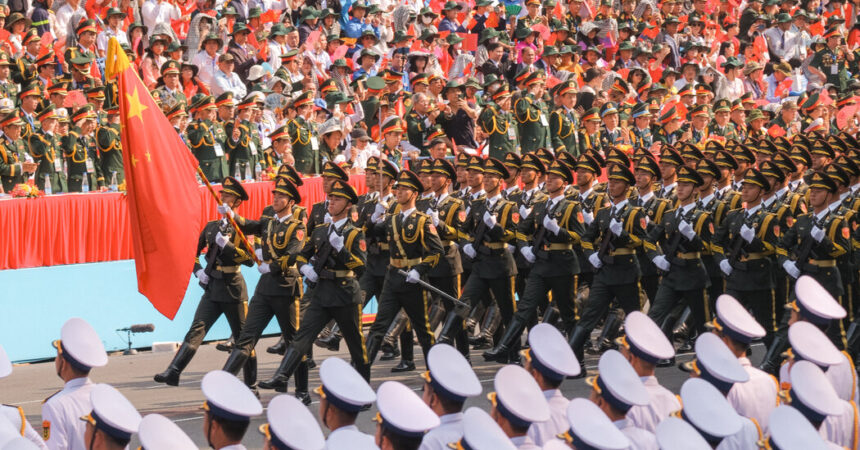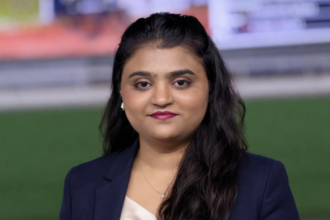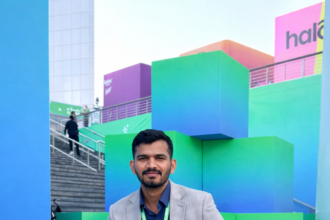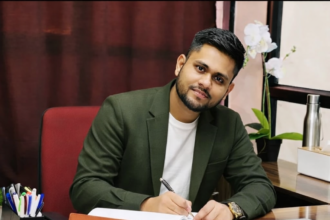Fifty years ago, my father, a reporter of the American war, climbed on the wall of the United States embassy in Saigon and hastened a helicopter who removed a roof in the mission.
“My last Saigon vision was through the helicopter’s tail,” Daily News wrote in Chicago. “Then the closed – closed in the most humiliating chapter in American history.”
My father believed in dominoes, how a cascade of communism could dilute Asia. A veteran of World War II, wrote a book entitled, without much iony, “Not without the Americans.”
The title looks like an anachronism, since a time when Paternalist Americans, insurance of their own defective democracy, imagined a world formed to their own image. Half a century after the expulsion of the last American troops in Vietnam, it is clear how Asia is learning to live, if not without the Americans, then with a new great power: China.
Beijing’s imprint is everywhere, from the disputed waters of the Southern China Sea, where the delicate coral reefs have been exhausted to build Chinese military bases, to remote villages in Nepal, where Chinese welcome paths.
The round trip Trump President Trump, the flagada of US diplomacy and the dismantling of the American aid agency, and with it, hundreds of programs in Asia-Feels as another retreat, and one that was.
When an earthquake hit Myanmar at the end of March, killing more than 3,700 people, the United States was much slower than China to send assistance. Then he fired American humanitarian workers while they were on the ground there.
“The United States used to defend hope and democracy, but now they are missing when we needed them,” said Ko Lic Naing San, a saging resident, the devastated epicenter of the earthquake. “China sent help quickly.”
But in his next breath, Mr. Ang Naing San questioned Beijing’s intentions in Myanmar. What concerned the looting of Myanmar’s natural resources and begged that the United States helped. When a military board overthrew the elected leaders of the country four years ago, a resistance to prodemocracy begged the United States to do something, anything, to repel the dictators.
Washington will not intervene in Myanmar; Another quagmire of Southeast Asia is the last thing any US administration wants. But American ideals and images, even when their institutions in the rock bed can be threatened at home, continue to resonate abroad: Hollywood, Bluejeans, notions of freedom.
In March, I interviewed General Chhum Sechheat, the Vice Minister of Defense of Cambodia. The United States had helped renew parts of a military base there, but the Cambodian government then turned to China in its place for full modernization. The American construction was razed, already early April, the installation built by the Chinese was presented with Chinese military officers attended.
While we left the interview, General Chhum Sechheat, who had an hour defending the authoritarian leaders of Cambodia, gave me a gently palmaditas.
“Your American democracy, is it a bit difficult now?” Hi, he asked with a surprising group.
I made an ambiguous noise. It has been pressed.
Cambodia, he said, was still recovering from the destruction of the years of Jemer Rouge, the duration that the radical communists swept society and supervised the death of up to a fifth of the country’s population.
“We are developing our democracy, like the United States, but first we need peace and stability,” he said.
I doubt that Cambodia, where a hereditary dictatorship has erased the political opposition and the freedom of expression of the knee, is really in a democratic trajectory. And a reason why the Cambodians hugged the Khmer Rouge in 1975 a brutal American bombing campaign that spilled the Vietnam War.
Even so, the reference of the Minister of Defense attached to American democracy meant something lasting about ideals. General Chhum Sechheat said he wanted the best to the United States, and that he urged me to believe, against significant evidence otherwise, that Cambodia also wanted to be with the Americans.
About 25 years ago, shortly before the great anniversary of the American Department of what is now the city of Ho Chi Minh, with Pham Xuan An, a colleague of my father’s Vietnamese reports. Uncle An, while he told me to call him, sat in a coffee where
He breathed irregularly from the empysteic, the same disease related to smoking that had killed my father years before. Uncle An was a great watch on his thin via, a gift from my father, he said.
“Mr. Beech was a patriot,” he said, pronouncing the word in the French way.
Uncle An was also a patriot. He worked as a correspondent for Time magazine, but in secret hero the rank of colonel in the Northern Vietnam Army, sending intelligence to the communists by invisible ink. He believed that Vietnam should fight for true independence, not being a pawn in an imperial game.
Despite his years of loyal espionage, Uncle An could have contained in the leg for his long association with the Americans. His career in the Socialist Republic of Vietnam never reached the heights he had expected. His son studied in the United States, as he had done once, then returned home.
A day in the final days of the Vietnam War, Uncle An said that my father had wanted to go to a battlefield. A former US sailor, my father was attracted to the trenches, full of young people recruited in a war that was already becoming a synonym for US defeat. Uncle An told my father to go to another place.
That day, Northern Vietnamese attacked the place my father had not gone to Uncle’s advice. My father lived while US soldiers died.
“I like Americans,” said Uncle An.








